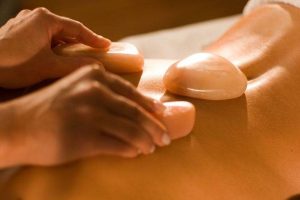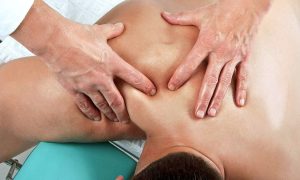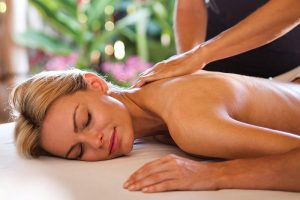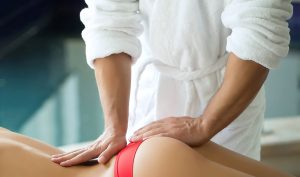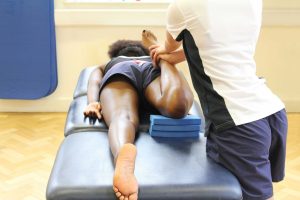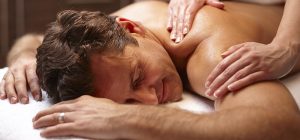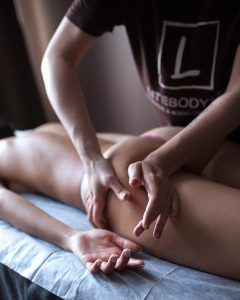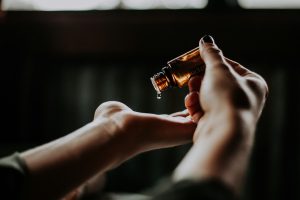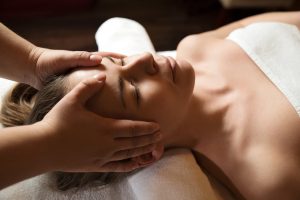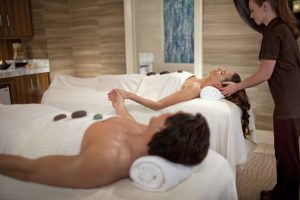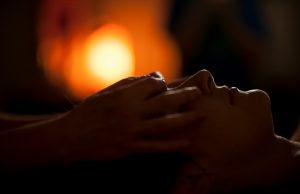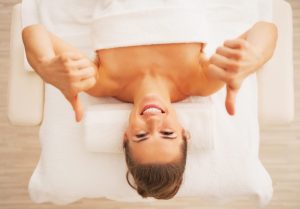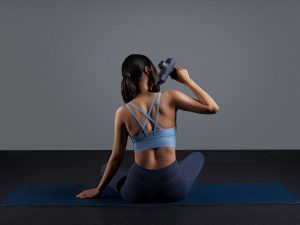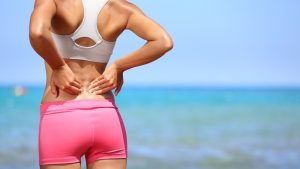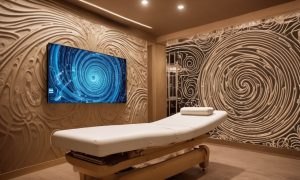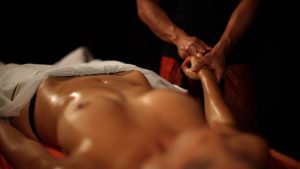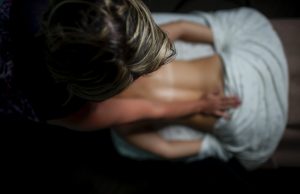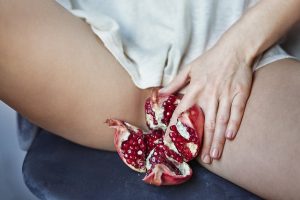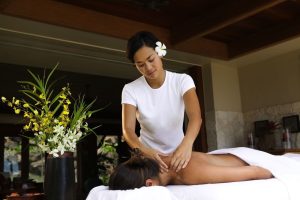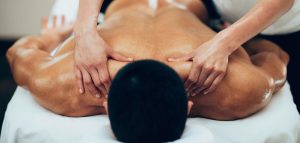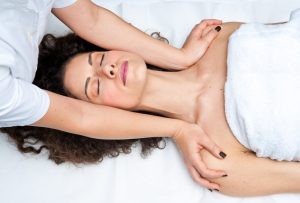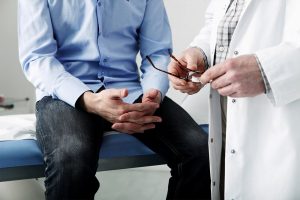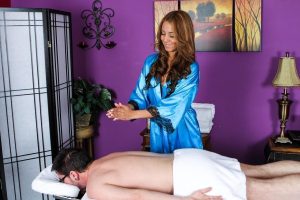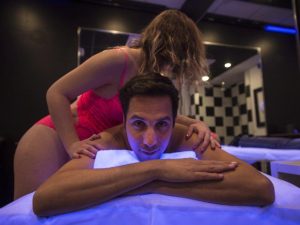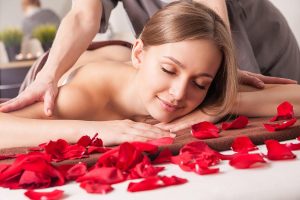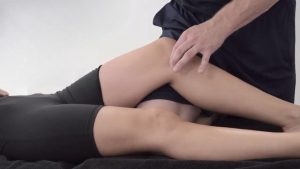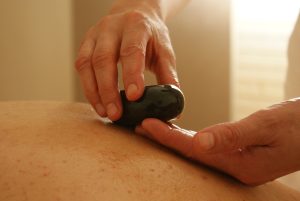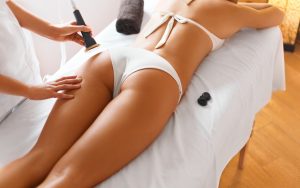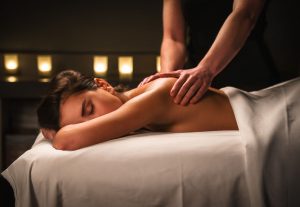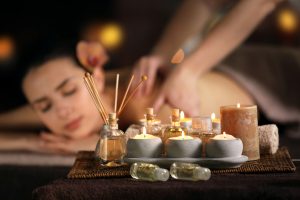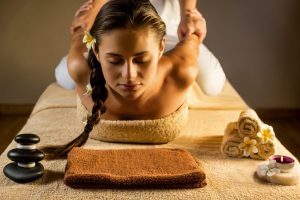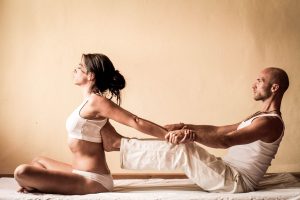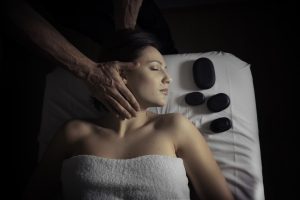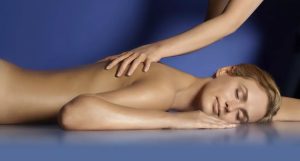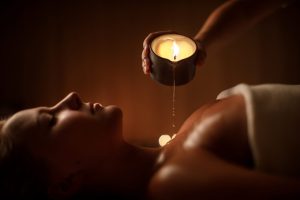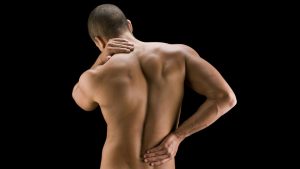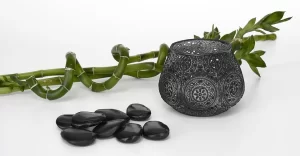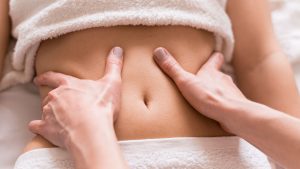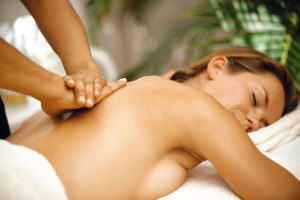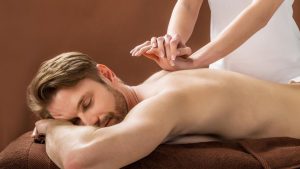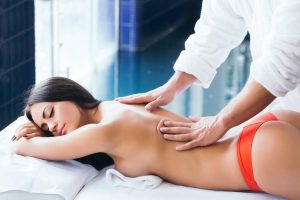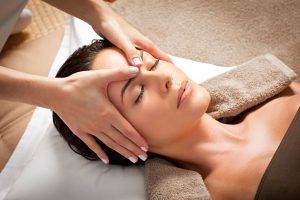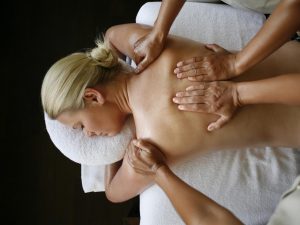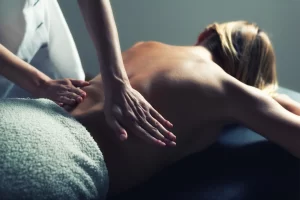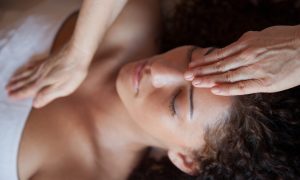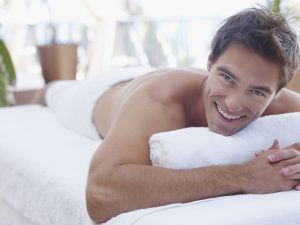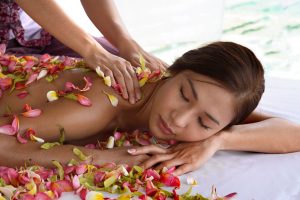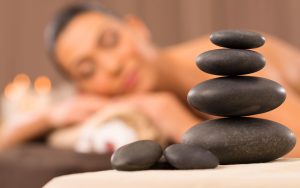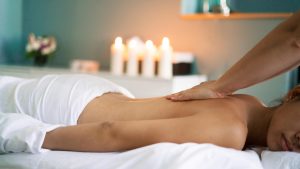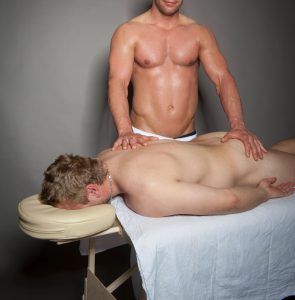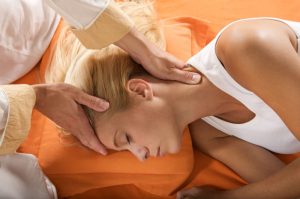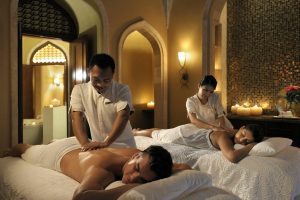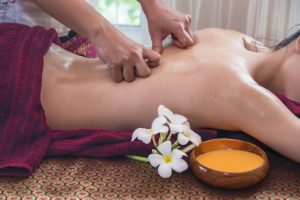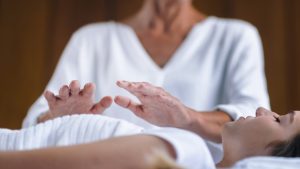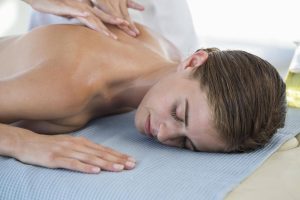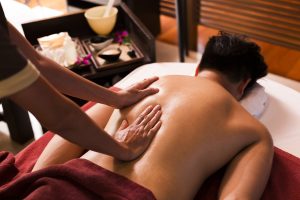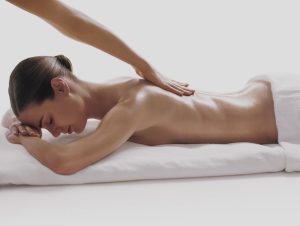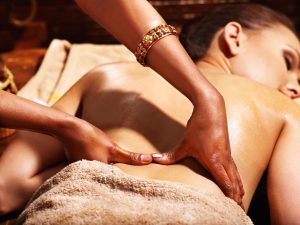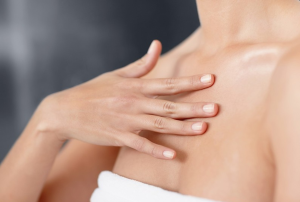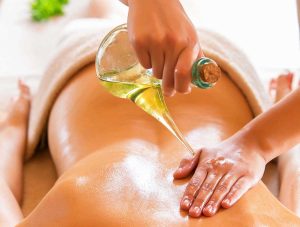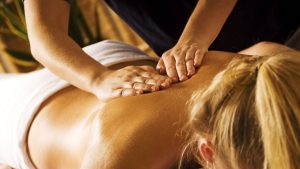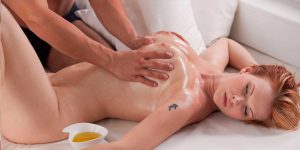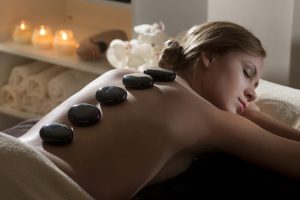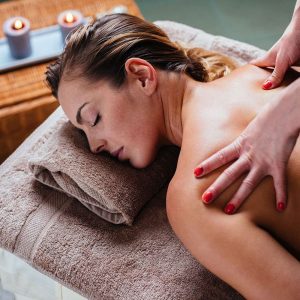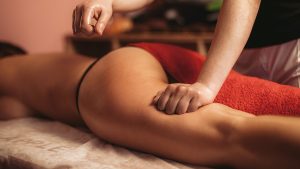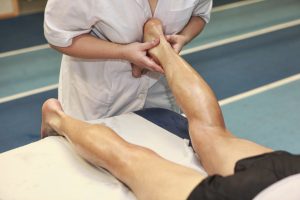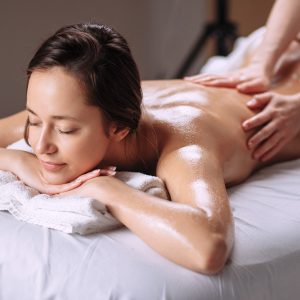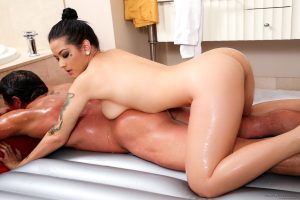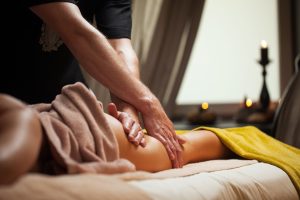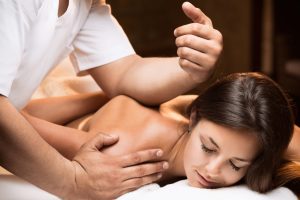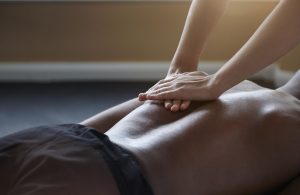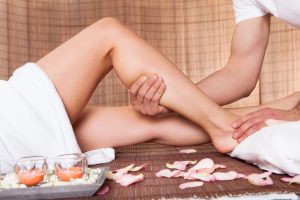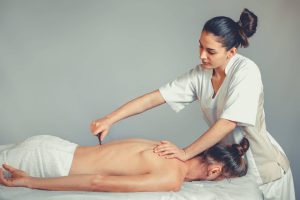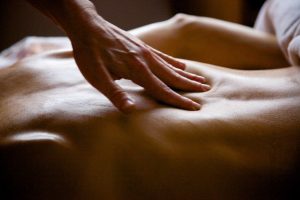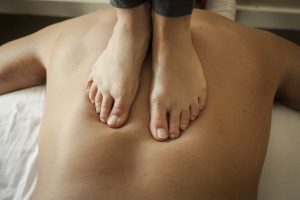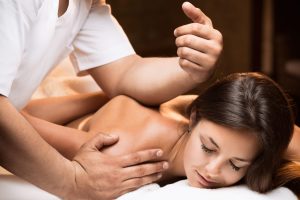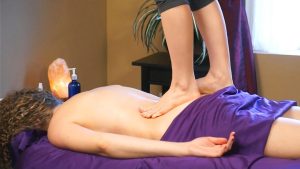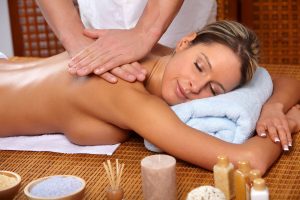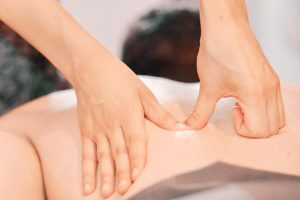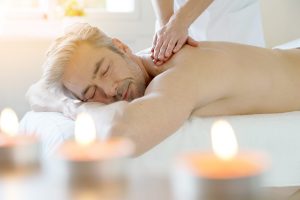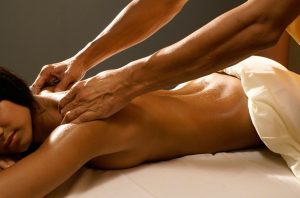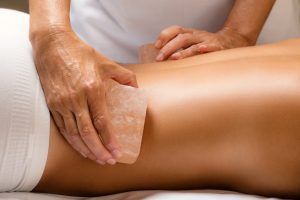Greek massage combines various techniques and elements from ancient Greek medicine. During a Greek massage, techniques are used that aim to relax, stimulate blood circulation and the lymphatic system, and alleviate pain and tension in muscles and joints.
Greek Massage Techniques
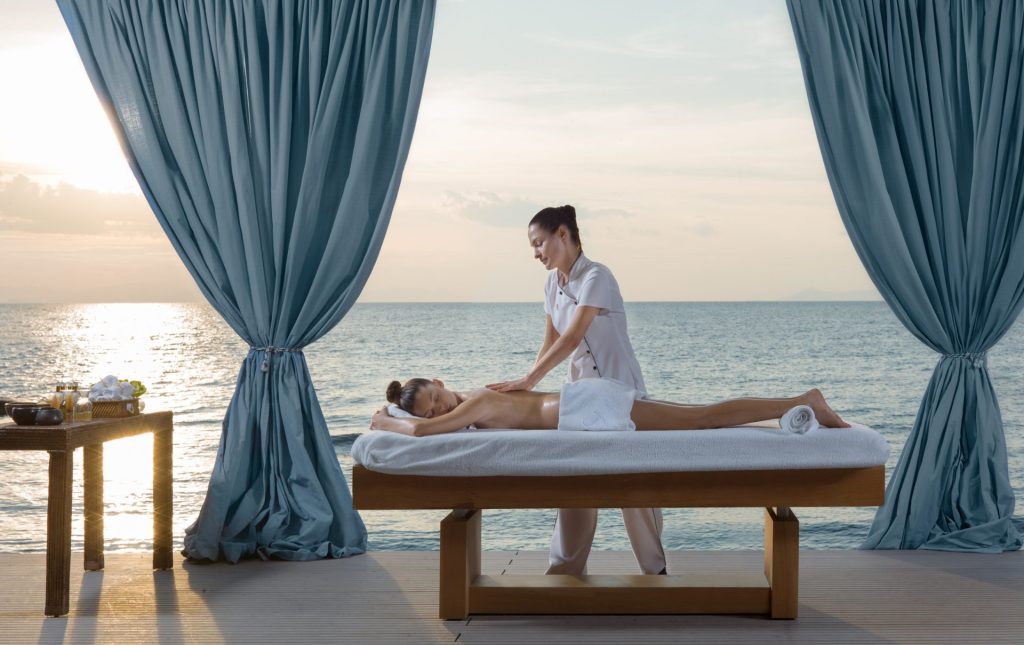

- Massage with hands and fingers.
- Use of oils and lotions.
- Cupping: At the end of the session, heated vacuum bags are used for cupping. Cupping helps stimulate relaxation, blood circulation and the lymphatic system, and cleans the body of toxins.
- Focus on the neck, head, and face: improving circulation, relieving tension, and promoting a sense of relaxation.
- Session with hydrotherapy: includes the use of water in various forms, such as baths, steam baths and scrubbing, to achieve therapeutic effects. This includes the use of hot and cold water, as well as hydromassage.
Advantages of Greek Massage
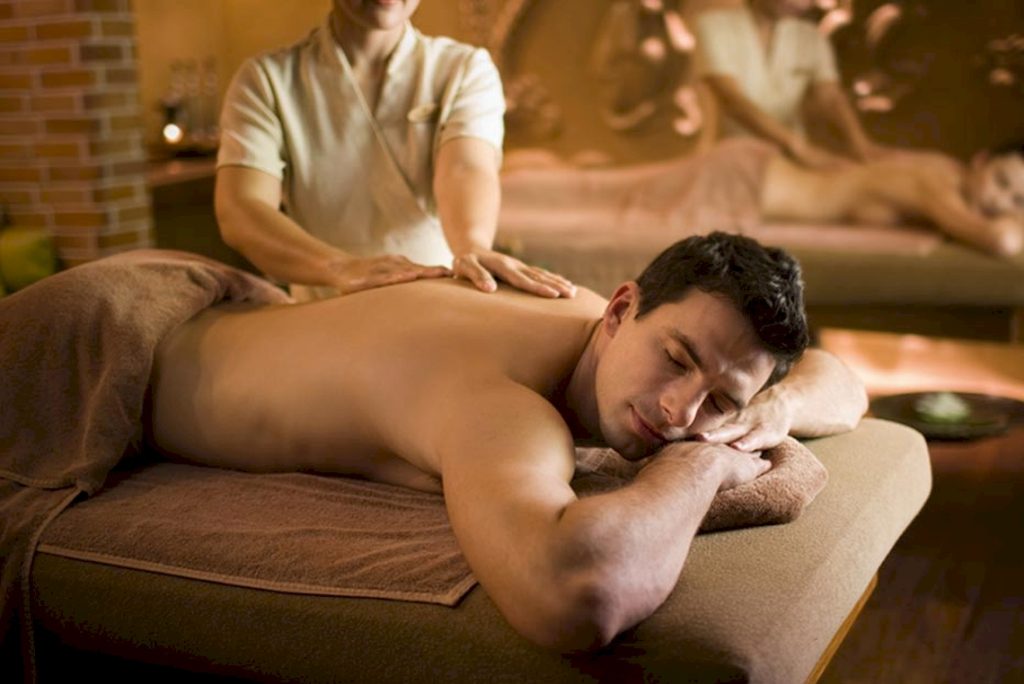

- Stimulation of blood circulation and lymphatic drainage.
- Relaxation and stress relief.
- Improvement of flexibility and mobility.
- Improvement of sleep and insomnia relief.
- Stimulation of energetic points and meridians.
- Improvement of psychological well-being.
- Strengthening of the immune system.
- Improvement of skin condition.
- Increase in energy and vitality.
- Increase in self-awareness and consciousness.
Modern Variants of Greek Massage
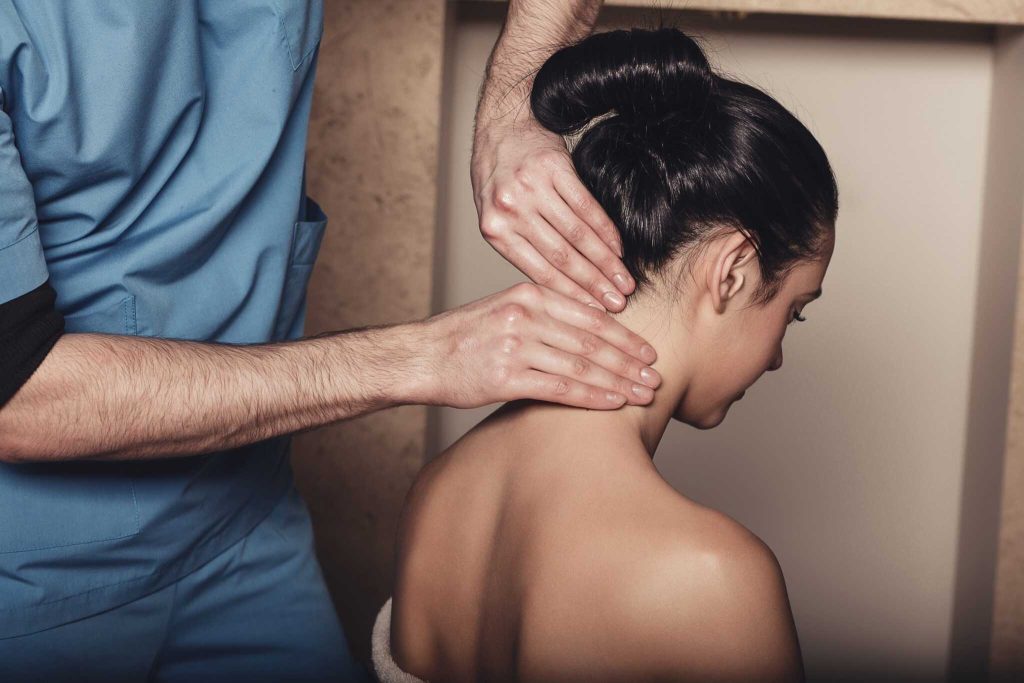

- Session with medicinal oils and herbs.
- Dry Greek massage: friction and deep tissue massage.
- Combined relaxation and hydrotherapy.
- Reflexology: application of pressure on certain points on the feet, hands, or ears, which are believed to correspond to different organs or body areas.
Precautions and Limitations
Relaxation is not recommended to be conducted in the following states and diseases:
- Acute infectious diseases, such as the flu or common cold.
- Skin diseases, such as eczema or psoriasis, especially in the area where the massage is planned.
- Open wounds, bruises or cuts.
- Severe pain or inflammation in the massaged area.
- Bleeding or tendency to bleed.
- Heart diseases.
- Thrombosis or thrombophlebitis.
- Oncological diseases.
- During pregnancy, especially in the first trimester. During pregnancy, it is necessary to consult a specialist to get recommendations and advice.
- After surgery or injuries, while the wounds are not completely healed and the doctor does not allow massage.
- During the exacerbation of chronic diseases, such as arthritis or osteoarthritis.
In conclusion, in ancient Greece, massage was an important part of therapeutic practice. Hippocrates, the father of Western medicine, recommended massage with strokes directed towards the heart to stimulate blood circulation and remove waste products from the body (detoxification). He also pointed out various versions of massage depending on the treatment goal, such as weight loss, muscle toning, stress relief and relaxation, healing specific injuries, and such.
Questions and Answers:
How to prepare for a Greek massage?
Before a massage, it is recommended to undergo light physical preparation. This includes exercises such as bench press, squats, or bicep curls. Before the start of the session, discuss your needs and expectations with the masseur. Learn more about the Greek massage process, including the techniques and tools used. If you plan to conduct a massage at home, make sure you have all the necessary tools and materials, such as massage oil. Also, ensure that you have enough space for a safe massage session.
What types of oils are usually used in Greek massage?
Palm oil is usually used for chest massage. Oil of thyme for the neck. Oil of mint for hand massage. Oil of grape seeds ensures long moisturization and is suitable for sensitive skin. Peanut oil contains substances that participate in the fight against edemas and inflammation. Oil of apricot pits is suitable for moisturizing and caring for oily skin, and carite contains various combinations of fatty acids that give the skin energy.
How long does a Greek massage session usually last?
The duration of the session varies depending on the client’s objectives and needs, as well as the individual approach of the masseur. In general, the session can last from 30 minutes to 2 hours. Modeling, with honey, sculpting, and anticellulite sessions involve working on subcutaneous fat and usually last from 45 minutes to 1 hour. A classic massage session of the neck-collarbone area usually lasts 15-20 minutes, and the duration of one classic massage session of the back is about an hour, during which each part of the body is massaged for 10-15 minutes.
Which groups of people can choose Greek massage?
This massage practice is suitable for athletes; people leading an active lifestyle to improve flexibility; students and office workers to compensate for long periods of sitting and stress; older people to improve the overall state of health and face; and people with chronic diseases to relieve pain and tension.
What is ancient Greek massage?
Ancient Greek massage is a form of therapeutic massage that dates back to the ancient Greeks. It incorporates techniques and principles derived from the practices of the ancient Greeks, including the use of ancient greek herbs and the application of virgin olive and essential oils.
How does ancient Greek massage differ from modern massage?
Ancient Greek massage differs from modern massage in its adherence to traditional techniques and the focus on holistic healing. It is based on techniques that were practiced in ancient Greece and often incorporate elements such as gentle massage and suction to enhance blood circulation.
What are the benefits of ancient Greek massage?
Ancient Greek massage is known for promoting relaxation and overall well-being. It can help in lightening and thinning muscles while also aiding in the emission of “serotonin. Additionally, it is believed to improve blood circulation and provide relief from muscular tension.
Who is considered the father of ancient Greek massage?
Hippocrates, the renowned Greek physician and the father of medicine is often credited with popularizing ancient Greek massage® and advocating for its therapeutic benefits. His diagnosis is the basis for the practice of ancient Greek massage.

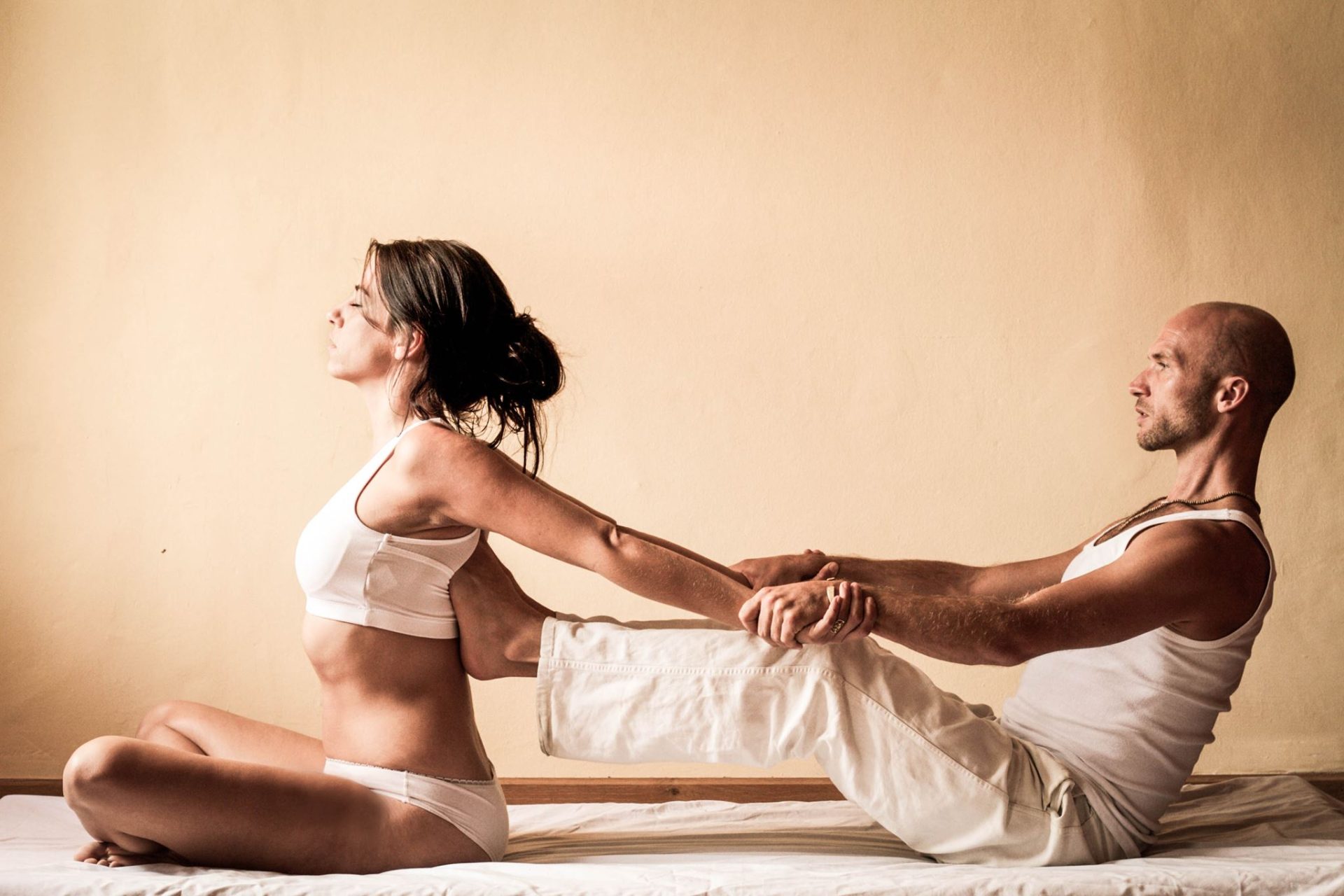








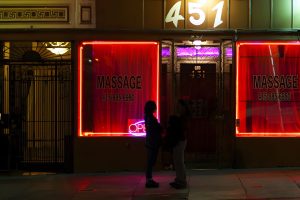

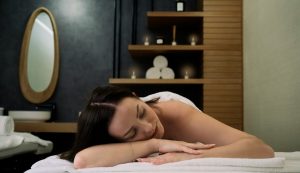
![11 Best Alternatives to Bedpage: Your Ultimate Guide [March 2024]](https://massage.dating/wp-content/uploads/2024/03/Best-Alternatives-to-Bedpage-300x200.jpg)







